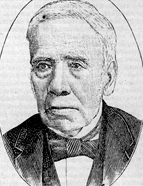

He was involved in various controversies, some triggered by things he had said in his works about various people who felt wronged by the way in which he had portrayed them. Palmela praised his work, although pointing out some errors, to which Soriano responded that he did not think the work was sufficiently “laudatory” (História do Cerco do Porto, Porto, A. Leite Guimarães Editor, 1889-90, 2ª ed., p.831). He engaged in a discussion about José Seabra da Silva with his grandson, António Coutinho Pereira de Seabra e Sousa (Resposta ao Senhor Simão José da Luz Soriano acerca de José Seabra da Silva por seu neto António Coutinho Pereira de Seabra e Sousa [Response to Senhor Simão José da Luz Soriano regarding José Seabra da Silva by his grandson António Coutinho Pereira de Seabra e Sousa], Lisboa, Imprensa Nacional, 1868). General Augusto Xavier Palmeirim complained that Soriano had reproduced the accusation of treason brought against him by the Miguelists when he moved over to the liberal camp in 1833 (Carta do General Augusto Xavier Palmeirim ao Exmo Senhor Simão José da Luz Soriano a propósito de duas páginas da sua História do Cerco do Porto [Letter from General Augusto Xavier Palmeirim to Senhor Simão José da Luz Soriano on the subject of two pages in his History of the Siege of Porto], Lisboa, Tipografia Universal, 1869). His experience as a deputy in the years 1853-54 also involved him in controversy. He felt persecuted and libelled, in particular by António Rodrigues Sampaio, over an episode concerning the sale of copies of his Historia do Cerco… in Angola. Soriano replied with a venomous pamphlet (A Quadrilha dos Senhores António Rodrigues Sampaio, Francisco Tavares de Almeida e António dos Santos Monteiro ou duas Cartas ao Redactor da Imprensa [The Gang of Senhores António Rodrigues Sampaio, Francisco Tavares de Almeida and António dos Santos Monteiro, or two Letters to the Editor of the Press], Lisboa, 1854) which led to his being hit on the head with a walking stick by a friend of Sampaio’s (Revelações...,1860, pp.434-438).
Soriano did not see himself in any of the political families of liberalism. Setembrismo was “a true public calamity” (Revelações..., 1860, p.421), the Regeneration was “ominous” (Op. Cit., p.430) and indeed all the ministries since 1834 had been marked by “immorality, egoism, dissipation, contempt for the law” (Op. Cit., p.545). Despite his constant complaints about 19th century constitutionalism, Soriano remained a liberal, complying with the figure of a conservative liberal, along the lines of Burke, for whom liberal values are, despite everything else, preserved but liberal hopes are dashed. Soriano rejects outright the liberal hope in the progress of humanity inherited from the Enlightenment and later the idea, updated by the liberal revolutions and labelled “utopian”, according to which the happiness of the people depends on the destruction of the past so that in its place a new respectable and orderly society can be built.
